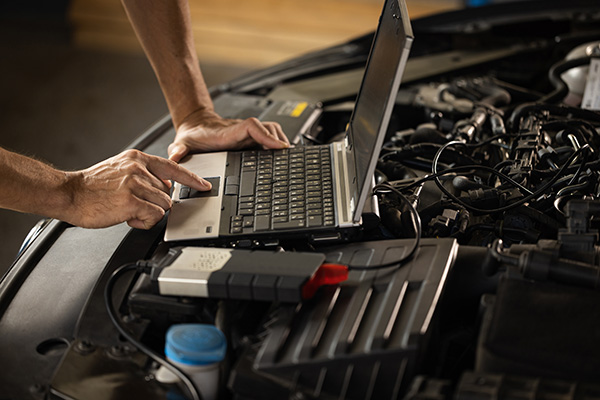
Has the check engine light come on in your car? Your mind may start racing with questions like, 'Is my car okay?' 'Can I keep driving?' and 'How much will repairs cost?' While this small light can cause significant stress, understanding how ECU diagnostics work can help you demystify the issue and get your car back in top shape. Let's take a closer look at ECU diagnostics and how they can help you fix that pesky check engine light."
The Role of the ECU in Modern Vehicles
Before we get into the diagnostics, let's see what the ECU or Engine Control Unit is. Think of the ECU as your car's brain. This sophisticated computer manages various engine functions, including fuel injection, ignition timing, and emission controls. The ECU continuously monitors data from numerous sensors in your vehicle to ensure everything runs smoothly. When something goes wrong, it triggers the check engine light to alert you to a potential problem.
Decoding the Check Engine Light
When the check engine light comes on, it can indicate a wide range of issues, from a loose gas cap to more severe engine problems. The ECU stores error codes related to the malfunction, which can be retrieved using an OBD-II (On-Board Diagnostics) scanner. These codes provide insight into what might be wrong with your vehicle, guiding mechanics to the root cause of the problem.
How ECU Diagnostics Work
ECU diagnostics involve connecting an OBD-II scanner to your vehicle's diagnostic port. This scanner reads the error codes stored by the ECU. Each code corresponds to a specific issue, such as a misfire, oxygen sensor failure, or catalytic converter problem. Here's a closer look at how this process is done:
Scanning for Codes
The first step in ECU diagnostics is to scan for error codes. These codes are alphanumeric and give a general idea of where the problem lies. For example, a P0300 code indicates a random or multiple cylinder misfire.
Interpreting the Codes
Once the codes are retrieved, the technician interprets them to understand the underlying issue. This often involves consulting a database of codes and potential causes, as well as considering the vehicle's make, model, and history.
Diagnosing the Problem
After interpreting the codes, a detailed diagnosis follows. This step may involve further testing and inspection to pinpoint the exact cause of the issue. For instance, if the code suggests an oxygen sensor problem, the sensor and its connections will be inspected for damage or wear.
Performing Repairs
With a clear diagnosis, the necessary repairs can then be performed. This could range from simple fixes, like tightening a gas cap or replacing a sensor, to more complex repairs, such as fixing an engine misfire.
Clearing the Codes
After the repairs are completed, the technician clears the error codes from the ECU. If the issue is resolved, the check engine light will stay off. However, if it comes back on, it may indicate an unresolved problem or a new issue.
Benefits of ECU Diagnostics
ECU diagnostics offer several benefits, making them an invaluable tool for modern vehicle maintenance:
- Accurate Problem Identification: By pinpointing the exact issue, ECU diagnostics help avoid unnecessary repairs and parts replacements, saving you time and money.
- Efficiency: Diagnostics can quickly identify problems, reducing the time your vehicle spends in the shop.
- Preventive Maintenance: Regular ECU diagnostics can catch issues before they become severe, helping to maintain your vehicle's performance and longevity.
- Peace of Mind: Knowing the precise cause of the check engine light can alleviate the anxiety that often accompanies this warning.
Common Issues Detected by ECU Diagnostics
Several common problems can trigger the check engine light, all of which can be identified through ECU diagnostics:
- Oxygen Sensor Failures: These sensors measure the amount of unburned oxygen in the exhaust and can impact fuel efficiency and emissions.
- Catalytic Converter Issues: Problems with this component can affect your vehicle's ability to reduce harmful emissions.
- Mass Airflow Sensor Problems: This sensor measures the air entering the engine and helps determine how much fuel to inject for optimal performance.
- Ignition System Faults: Issues with spark plugs or ignition coils can cause misfires, impacting engine performance.
Solve the mystery of your check engine light with professional ECU diagnostics at Oceanworks Berkeley. Contact us today to make an appointment and ensure your vehicle's health.